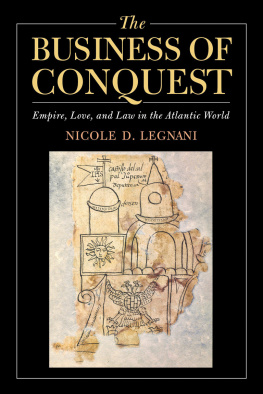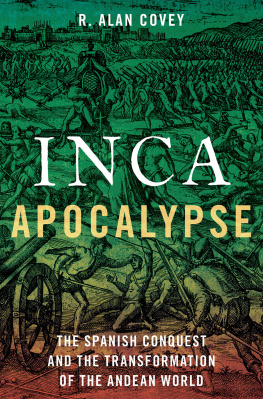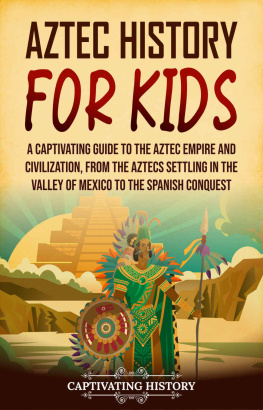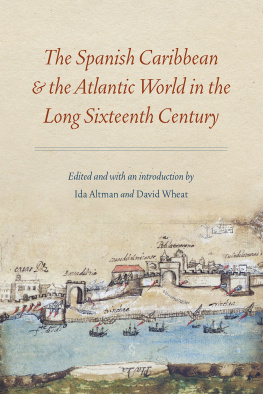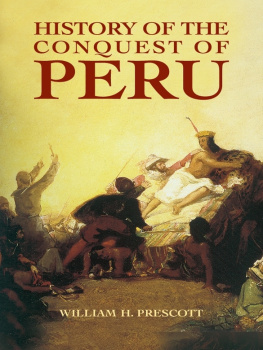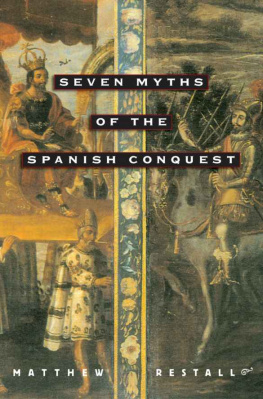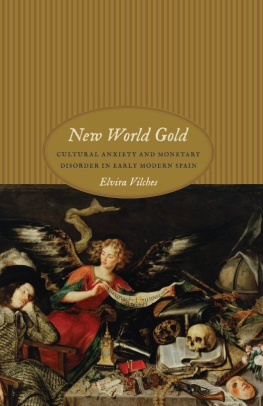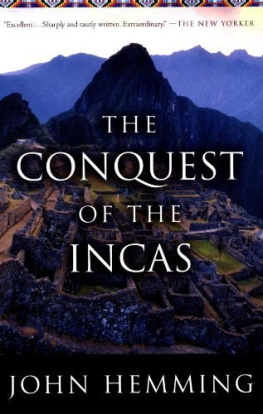ACKNOWLEDGMENTS
Perhaps it is fitting that a study that reckons with the moral and material debts incurred by various agents in the Iberian conquests should participate in the long-established trope of the author expressing her gratitude for the support received from people and institutions, without whom and without which this book would have been impossible to complete. So I begin with my thanks for the genre itself, which designates this space at the beginning to itemize both my outstanding debts and my sincere assurances of my intention to repay them, alongside the deep-seated conviction that a commensurate settlement remains an impossible but not for this reason, less indispensable task to undertake in the lines below.
I am deeply indebted to Eli Bortz, my editor at the University of Notre Dame Press, and his editorial team for their unflagging support for and meticulous work on this project. Sheila Berg, you are a rock star.
It has been a privilege and a pleasure to benefit from two especially generous mentors and rigorous readers over the years, Jos Rabasa and Mary Malcolm Gaylord. Their patience, sense of humor, and encouragement never fail to surprise and guide me.
To Jos Rabasa, who first directed me with marginal notes and questions and in phone conversations and meetings over coffee ever since I was a graduate student, my deepest gratitude for continuing to read me and for providing me with invaluable advice such as No te comas el coco. He continually challenges me to embrace the questions that arise in writing, questions that must be raised precisely because they have no easy answers.
This book would not have been possible without the unparalleled support and nurturing of Mary Malcolm Gaylord, who remembers where I sat in all the seminars that she taught and has never failed to support my professional development, who cooks for and hosts dinners at her home in Concord, and who asks variations on the question So what?, as needed, in copious marginalia. She has been my teacher, mentor, and friend since I was a first-year student at Harvard College. Her attention to detail, argument, and structure is without parallel. My thanks for her patience and support and for believing in the salience of this project from the outset.
I am extremely grateful to Juan Vitulli for his extensive commentary, questions, and suggested revisions of the manuscript. I am similarly grateful to the anonymous reviewer for extremely positive feedback and suggestions. I cannot begin to express my thanks to Jorge Tllez Vargas for reading and commenting on earlier versions of the introductory and third chapters and to Isis Sadek for her insightful comments and recommendations on later versions. My thanks also to Andy Alfonso, Juan Diego Prez, and Robert A. Myak, whose sharp eyes and attention to detail were integral to the editing and proofreading processes.
I would also like to extend my deepest gratitude to Jos Antonio Mazzotti for recognizing my vocation when I was an undergraduate and for encouraging and supporting my first foray into colonial Latin American studies.
I must also thank my colleagues with whom I have the great pleasure of working in the Department of Spanish and Portuguese at Princeton University: Marina Brownlee, Alberto Bruzos Moro, Nicola Cooney, Arcadio Daz Quiones, Rubn Gallo, Javier Guerrero, Germn Labrador Mndez, Christina Lee, Angel Loureiro, Pedro Meira Monteiro, Gabriela Nouzeilles, Rachel Price, and Ron Surtz. Though Bruno Carvalho has left us, I would certainly be remiss if I failed to thank him as well. Fernando Acosta, our curator, and Gabriel Swift, at the Rare Books and Special Collections in Firestone Library, fielded all my questions and last-minute requests. I would also like to thank Mitra Abbaspour at the Princeton Art Museum for reaching out to me in the spring of my first year at Princeton when I was teaching my first graduate seminar. Without her inquiry and initiative, I would not have met the Postcommodity collective, Raven Chacn, Cristbal Martnez, and Kade L. Twist, whose praxis continues to be an inspiration. To Vera Candiani, the ardent inquisitor of my use of the term venture capital, my thanks for the pushback and the camaraderie. I am also grateful to Sarah Rivett for opening a space for Indigenous studies to flourish at Princeton, the settled and unceded territory of the Lenni-Lenape.
My thanks to Danelle Gutarra Cordero for organizing the Postcolonial Humanities Working Group through the Humanities Council at Princeton, where I benefited greatly from participants questions and comments on Las Casas and his Madeira rabbits. I am also grateful to the Tepoztln collective for affording me the opportunity to present two papers during the 2014 and 2017 summer meetings. The theory read, commentary given, and performances presented by participants informed the sections on Jos de Acosta in the introduction and chapter 4 and the Las Casas section in chapter 3. I also wish to thank Tulia G. Falletti and Cathy Bartch for inviting me to give the keynote address at the third annual Penn in Latin America and the Caribbean conference in October 2017. The longer format allowed me to trace the relationships between Las Casas and Columbus as developed in chapter 3.
I would also like to acknowledge the editors of Latin American Culture and the Limits of the Human, who permitted me to reproduce sections from my chapter, Invasive Specie: Rabbits, Conquistadors, and Capital in the Historia de las Indias (15271561) by Bartolome de Las Casas (14841566), in chapter 3. These selected excerpts are reprinted with the permission of the University Press of Florida from my chapter in Latin American Culture and the Limits of the Human, edited by Lucy Bollington and Paul Merchant (Gainesville: University Press of Florida, 2020).
Over the years, many of the students who sat around a seminar table with me have proved influential in my research and writing process. When I served the Romance Languages and Literatures Department as a College Fellow at Harvard University, I was especially grateful for the insights provided by James Almeida, Henry Brooks, Jos de Len Gonzlez, and Wilnomy Prez Prez. As an assistant professor in the Department of Spanish and Portuguese, I have been similarly blessed to sit at a roundtable with Andy Alfonso, Luisa Barraza Caballero, Vero Carchedi, Berta Del Ro Alcal, Yangyou Fang, Jannia Gmez Gonzlez, Ryan Goodman, Alejandro Martnez Rodrguez, Sean McFadden, William Mullaney, Juan Diego Prez, Paula Prez Rodrguez, Paulina Pineda, Sowmya Ramanathan, Margarita Rosa, and Peter Schmidt.
Over the years, I have benefited from conversation with and camaraderie of friends, readers, and co-presenters who have informed my research and writing in creative and productive ways: Arantxa Araujo, Santa Arias, B. Chrissy Arce, Antonio Arraiza, Orlando Bentancor, Josiah Blackmore, Monique Blom, Lotte Buiting, Luis Crcamo Huechante, Rodolfo Cerrn Palomino, Enrique Corts, Gregory Cushman, Jessica Delgado, Ivonne Del Valle, Susana Draper, Caroline Egan, Luis Girn Negrn, Goretti Gonzlez, Karen Graubart, Evelina Guzauskyte, V. Judson Harward, Michael Horswell, Rosario Hubert, Nick Jones, David Kasanjian, Stephanie Kirk, Salomon Lerner Febres, Obed Lira, Melissa Machit, Yolanda Martnez-San Miguel, Kelly Mc-Donough, Michelle McKinley, Mara Rosa Menocal (q.e.p.d), Leah Middlebrook, Giovanna Montenegro, Anna More, Cristina Moreiras Menor, Chris Morin, Abdul-Karim Mustapha, Afsaneh Najmabadi, Dan Nemser, Sophia B. Nez, Simone Pinet, Rachel OToole, Mara Josefina Saldaa Portillo, David Sartorius, Sarah Winifred Searle, Mariano Siskind, Daniel Strum, Analisa Taylor, Zeb Tortorici, Carlos Varn Gonzlez, Miguel Valerio, Manuela Valle-Castro, Sonia Velzquez, Luciana Villas Bas, Pamela Voekel, Lisa Voigt, Dillon Vrana, Emily Westfal (RIP), and Gareth Williams. I would also like to extend my heartfelt thanks to my fellow ASADISTASMiguel Martnez, Aude Plagnard, Vctor Sierra Matute, Lorena Uribe, Felipe Valencia, and Juan Vitullifor continuing to provide inspiration on a quasi-daily basis within a close-knit community founded on a shared appreciation for early modern poetry and the politics of its reception.
Next page
